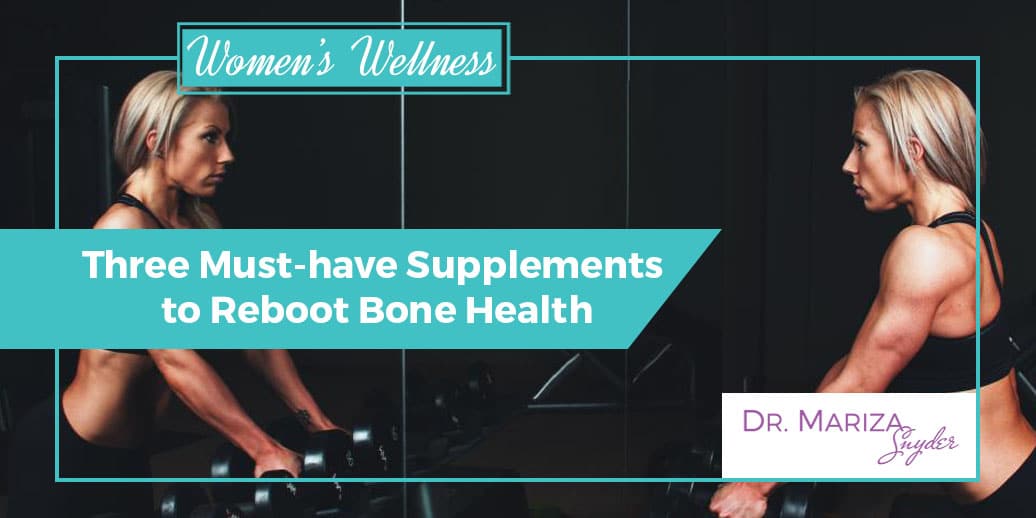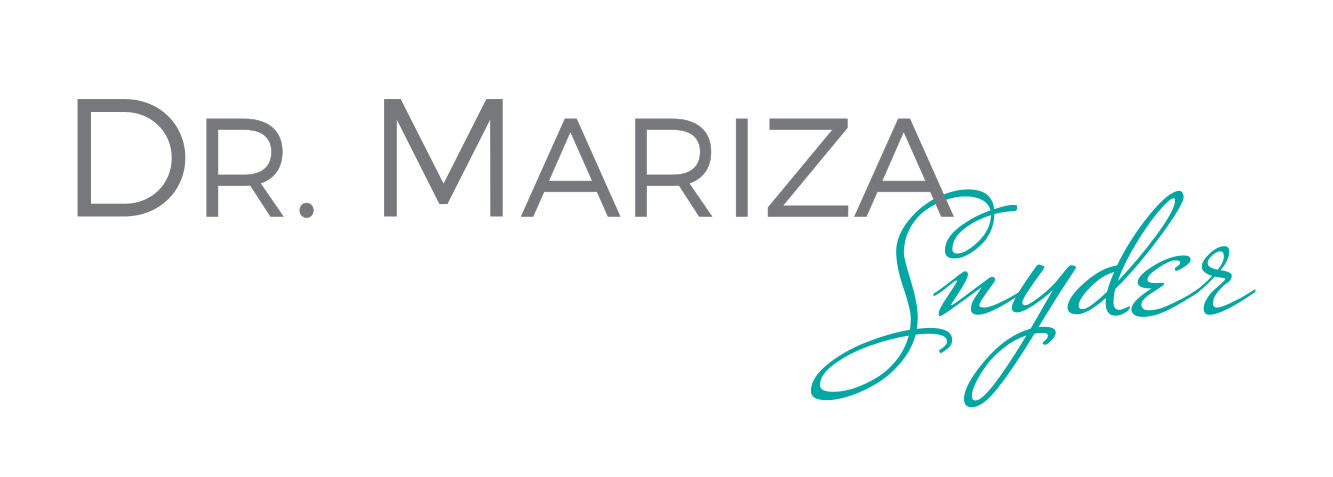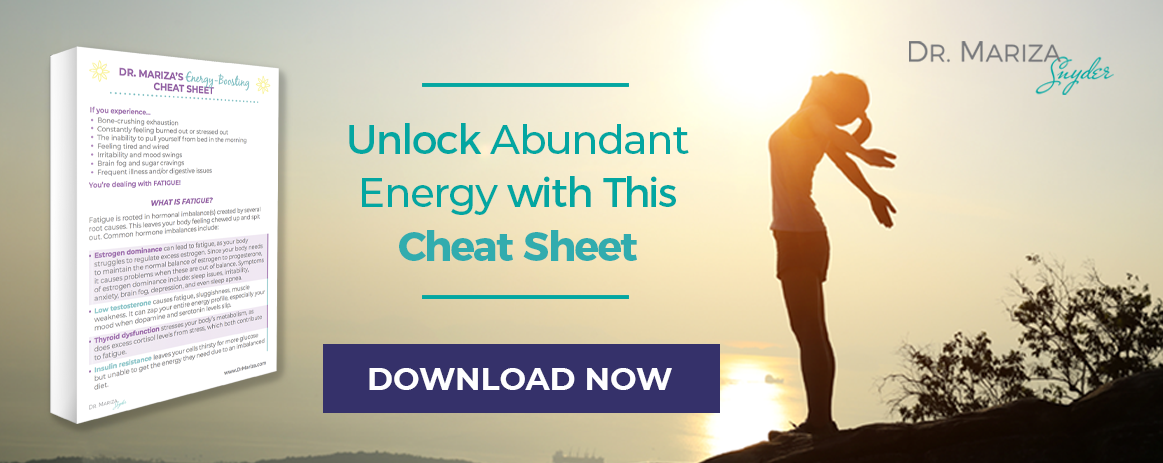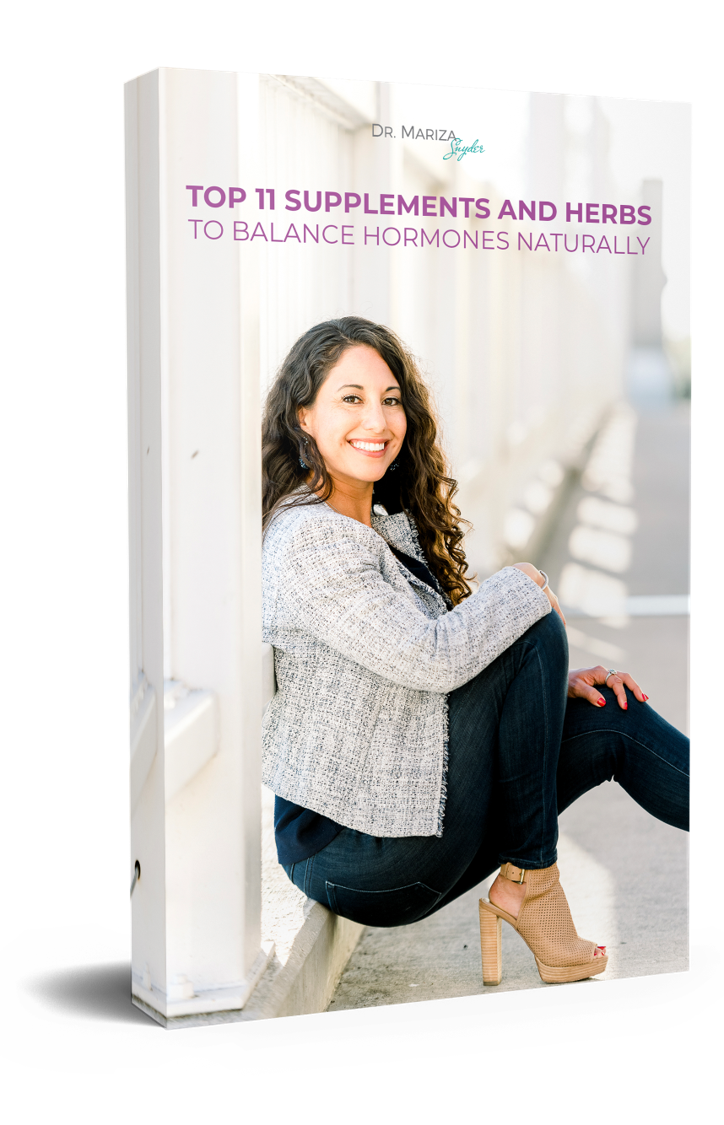
Did you know that as you reach your mid-30s, your bones start to decline? Technically, it’s called bone resorption, but it means that your bones can’t sustain themselves anymore and we lose strength.
There is a fun little battle between the osteoblasts (cells that form the bones) and the osteoclasts (cells that break the bones down). Through most of our lives, the osteoblasts are the victors, but once we hit our 40s, those pesky osteoclasts take charge and the scales tip the other way. Bone loss speeds up; bone formation slows down.
So, what does this mean?
It means we have yet another internal battle threatening our mainframe, and we need to jump in now to prevent things like osteoporosis! No one wants to spend their later years dealing with low bone density, leading to easier falls and breaks.
THE KEYS TO SUSTAINING HEALTHY BONE DENSITY
While most people usually think of calcium as “the bone builder,”in reality, there’s a bit more to protecting your bones than just making sure you’ve met your daily calcium intake.Many vitamins and minerals are involved in keeping your bones healthy, but there are three nutrients that have the biggest impact. In fact, this trio works together as a team to help maintain and/or increase bone density.
Vitamin D
Before we get to the minerals, let’s talk vitamins. Yes, I know you were expecting me to say Calcium right off the bat, but here’s the thing: without Vitamin D, your body will have a hard time absorbing the Calcium and sending it where it needs to go – to your bones. Vitamin D is necessary in order for your intestinal tract to absorb calcium.
Depending on who you ask, the daily recommended allowance for Vitamin D can range anywhere from 600mg per day to over 2,000mg per day. If you are concerned about your level of intake you should discuss this with your doctor. Here is where that individualized approach to healthcare I’m always talking about comes into play.
If you currently have osteoporosis, your recommendation may be on the higher side, around 4,000mg.
If you’ve ever been told you are Vitamin D deficient, you may have been prescribed much larger doses of the vitamin to correct your deficiency.
So how do you get more of this essential nutrient?
One easy way is a jaunt in the sunlight!
UV rays react with cells in our skin to trigger the production of Vitamin D! One caveat, though –
this only works if you’re not covered in sunscreen. Sigh. But, a mere 20 minutes of sun exposure, sans sunscreen, a couple of times per week can help to boost your body’s production of Vitamin D.
Looking to work Vitamin D into your diet? Great sources include:
– Fatty fish, such as salmon, tuna, and mackerel
– Beef liver
– Cheese
– Egg yolks
– Fortified cereals
– Orange juice
But even if you’re outside daily and you are trying to eat these foods, you still may not be getting enough because of how much your body is burning through. Vitamin D is one of those that your body needs even more if you’re dealing with stress, heightened immune responses, and changing hormones like what you experience in perimenopause and menopause.
Adding in a quality vitamin D supplement (like this one, formulated with vitamins K1 and K2 for optimal absorption) is an easy and safe way to guarantee you’re getting what you need!
Calcium
Everyone knows from their childhood that calcium plays a very important role in bone formation.
Here are the facts:
According to the National Institute for Health, the recommended daily allowance (RDA) for calcium is 1,000mg per day for women ages 19-50 years and 1,200mg per day for women ages 51-70 years.
Again, this depends on your personal needs and individualized healthcare plan. But, in general, we don’t get enough calcium in our diets, so be very cognizant of your intake!
Milk, yogurt, and cheese are staple calcium sources for many, but for those avoiding dairy, you can also find it in other places like:
– Canned Sardines
– White beans & Black-Eyed Peas
– Almonds
– Dried Figs
– Bok Choy
– Kale
– Broccoli
– Blackstrap Molasses
– Oranges
– Seaweed
– Fortified cereals
– Fortified juices
Time to get in on the green smoothie action and add some extra umph for your calcium needs!
Magnesium
Though not mentioned often in the past, Magnesium has started to pop up in health circles recently. And it’s no secret why – there are over 300 chemical processes in the body that require magnesium as a catalyst!
Plus, without Magnesium to regulate your body’s absorption of calcium into your bones, your body can succumb to horrors like kidney stones and calcification in blood vessels that can lead to heart disease. Yikes!
Thanks to our supposedly “modern” Western diet rich in processed foods and lacking micronutrients, Europeans and North Americans are severely lacking in their Magnesium needs. Let’s add to that things like prolonged stress (hello, hormones) and certain medications such as those for GERD (often triggered by stress) which can deplete your body’s magnesium stores.
Studies have shown that postmenopausal and elderly women who increase their magnesium intakes, whether from supplements or food, may have an increase in bone mineral density.
To get more of this essential mineral, you can amp up your stores by adding a few delicious items to your diet:
– Almonds, Brazil nuts, peanuts, & cashews
– Squash, Sesame, & Pumpkin Seeds
– Fish (esp. Mackeral, Pollock, & Tuna)
– Spinach & Dark Leafy Greens
– Plain, Non-Fat Yogurt
– Avocados
– Bananas
– Beans & Lentils
– Whole Grains (esp. Brown Rice, Quinoa, & Millet)
– Dried Fruit & Figs
– Dark Chocolate
But Magnesium supplements are the easiest and fastest way to increase your magnesium levels safely.
Magnesium Glycinate combined with Magnesium Oxide (like what you find in my Magnesium Restore supplement) is the ideal combo because it both increases your magnesium level quickly and offers sustained support for all of your body’s systems.
TO SUPPLEMENT OR NOT TO SUPPLEMENT?
I understand…now you may be wondering, ‘Do I supplement or can I get all the nutrients I need from the food I eat?’
You know I am the first one to recommend focusing on nutrition first, but sometimes supplements are necessary, especially in our later years. Nutrient-deficient soils in addition to free radicals and chemicals from pesticides and other growing practices make it impossible to get the wholesome foods that our bodies so need.
Add to that the rigors of a body under constant stress, like those suffering from Rushing Women’s Syndrome, and those who are taking medications for any number of chronic conditions such as gastro-intestinal disorders, diabetes, heart disease, and high blood pressure, and you have the perfect storm for deficiency in Magnesium and Vitamin D.
Many functional medicine practitioners have stated that, as a society, our ingestion of Calcium is too high, which can lead to chronic conditions. Yes, you do need calcium to maintain healthy bone density, but for too long we have been ignoring the fact that it must be balanced with proper Magnesium levels and supported by proper levels of Vitamin D.
That being said, there is no one-size-fits-all recommendation for supplementation. While speaking to your doctor may provide some help in this matter, a functional medicine practitioner may be more helpful. But remember to go with your gut, because YOU are in charge of your own healthcare!
FOODS TO AVOID
Let’s shift for a moment and consider a few foods that you should avoid or limit.
Excess Salt. Too much can cause you to excrete Calcium in your urine.
Carbonated Drinks. Phosphoric acid and caffeine (in some) both leach calcium from your bones.
Caffeine. Limit caffeine 300 mg per day – no more than 1 cup of coffee or 4 8-oz. sodas. Try Matcha Green Tea for a mini-caffiene boost while you adjust to no-soda and no-coffee, and you will fall in love with its amazing health benefits!
WEIGHT-BEARING EXERCISE
Did you know that simply weight-bearing exercise can help to support your bones and promote growth? The action of muscles pulling against your bones (basically what happens every time you move) encourages bone formation and mineralization. If you want to slow your rate of bone loss as you age, this is a vital component of any prevention plan.
What can you do? Aim for some form of weight-bearing exercise for 30 minutes at least 4 days per week, like…
– Brisk walking/jogging
– Hiking
– Dancing
– Strength training
– Stair climbing
– Tennis
– Yoga
ESSENTIAL OILS
While there is limited scientific information regarding the use of essential oils for improving bone density, there is at least one study that found that the essential oils of Sage, Rosemary, Juniper Berry, Pine, and Eucalyptus inhibited bone resorption (loss) when added to the food of rats.
What you can do is use essential oils to support your exercise routine or to add flavor to your green smoothies and recipes when trying these foods in your diet. Try Peppermint and Wild Orange to boost your exercise routine, or add some flavorful citrus EOs to your daily smoothie.
It’s so important to start taking steps now to prevent bone loss and Osteoporosis as we age. Thankfully, with some simple tweaks to your diet and fitness routine, you should be able to keep your bones strong and healthy for years to come.
Free Download: Easy, Practical Tips to Get More Energy!
Download the free Energy-Boosting Cheat Sheet now to learn how to unlock abundant health and energy that lasts—in only seconds every day!



No comments yet.